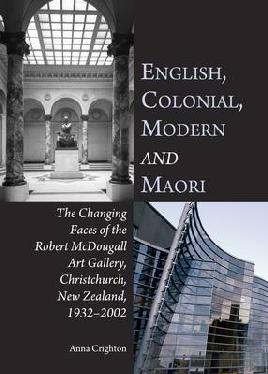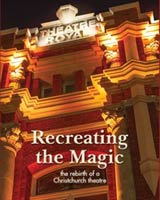Dame Anna Crighton has lived a thousand lives in her one lifetime from leaving school at age fifteen, to achieving a hugely diverse body of work, including a PhD and becoming a New Zealand heritage campaigner and former local-body politician - Anna has really tried it all.
The event was bustling, the room was filled, and Anna began reading an excerpt from her memoir Still Standing. One of the first stories Anna shared with the audience during her reading, was about the time she was hurt as a small child with boiling water that had accidentally fallen on her, which was published in an article titled ‘Child Scolded’. During her six weeks in hospital, Anna grew fond of the nurses and didn’t want to leave. This began to give me a sense of the hardships Anna had experienced in her upbringing.
Anna grew up with an authoritarian father and a self-centred mother, who had spent more time admiring herself than giving affection to her two children, Anna and her older brother Ralph. Anna began to feel really isolated at home as her older brother ralph was loved by their grandmother and was often spoilt and taken out on trips whilst Anna was stuck at home, receiving none of that love and excitement.
Anna used a very specific word to describe herself, it’s a word that I have never heard before but upon looking up its definition, I can see how absolutely fitting it is to describe Anna’s younger years and even now as her adventurous spirit has in no way diminished. The word you may be wondering is ‘Contumacious’. Does this word resonate with you or someone you may know? They may well be as stubborn and adventurous as Anna!
Anna Crighton is a local Cantabrian, having grown up in Ōtautahi Christchurch and attending Christchurch Girls high school for a short time. She also spent what she described as ‘the happiest times of her life’ in Dunedin where she got to engage more with her passion for Scottish Country Dancing. Anna was a free spirited being and uses the term ‘wild child’ to describe her teenage years. Her wild child behaviour may have gotten her into a bit of trouble though, such as starting a relationship with a man riding a motorcycle and later in life with a Hungarian man whom she refused to marry, despite her mother’s persistence.
As the roaring of the motorcycle began to accelerate, Anna’s reputation became associated with rebelliousness and her parents were called in for a meeting, leading to Anna being asked to leave Christchurch Girls High. Since that day, at age fifteen, Anna felt her life had been upturned and she ended up in a Magdalene laundry asylum, which were institutions that originated in Catholic Ireland, used for the purpose of reforming young girl’s behaviours.
An interesting fact that I learned today from attending this event is that there was a Magdalene Laundry right here in Ōtautahi Christchurch! Where do you think it was located? Might it be a surprise to you that it was in Halswell at the St John of God which is a place that now provides residential and respite care to those living with physical or neurological impairments. However, Anna’s time at the Magdalene Laundry did not last very long, as her rebellious and adventurous spirit took over and she, alongside another young girl, plotted an escape plan. What started with climbing across two large fences, a wall and running and running until their legs gave out near a creek, ended with sniffer dogs and police. It was a very adrenaline-based escape rouse, but the aftermath did not end well.
Fast forward to Anna’s adult years as a solo mother to her son, Dorian, who witnessed the abuse and violence in the family home instigated by his father and Anna’s husband at the time. Anna takes us on a very intimate journey as she shares with us the pain and truth about her volatile husband and abusive marriage. One moment during the event that really stuck out to me was when she reported to the police that she had been strangled by her husband, to which the officer’s response was for her to file a complaint against him and to go home and talk it out. Because of the generational gaps between Anna’s lifetime and mine, I was shocked to hear that back in those times, there were no agencies for domestic violence, no awareness and no serious sanctions and especially nothing that was put in place for women to excel, rather the belief was for them to just get married.
The tipping point at which Anna tells the audience she snapped and realised she can’t keep going on like this was when her husband had thrown their son, Dorian across a wall. She as a mother, knew she needed to take Dorian away, so she left with her child wrapped up in a blanket and a basket of nappies and went back to her mother’s which also wasn’t a happy place for her to be. She began doing odd jobs here and there and always had her sweet little Dorian by her side.
Despite all the suffering, isolation and fear Anna had been through, she wasn’t about to let that stop her from realising that a change needed to come about in the city of Ōtautahi Christchurch. Anna was on a mission to save heritage buildings through her love of arts and architecture.
The east of Ōtautahi Christchurch was always frowned upon for being poor and the west was viewed as wealthy and better off. This caused anger within Anna that the city was being segregated by comparisons of wealth and she believed that the East side of Ōtautahi Christchurch deserved decent streets, beautiful trees and, nice kerbsides and a place that just didn’t look so deprived and neglected. Anna decided that local politics was the way forward to make a difference for the community living on the east side of Ōtautahi Christchurch. I loved the jump from different careers in Anna’s life, especially during the time when she was a teenager, being told that a women’s job was simply just to get married, it was really encouraging to see her achieve so much in so many different roles. She stated that local politics allowed her to ‘make a difference to people's lives by improving their environment and understanding them and giving them some pride’ and Anna could do this by influencing things by being a part of the council. Anna stayed in local politics for more than a decade and gave twelve years as a city councillor and fifteen years as a community board member.
Her time in the community was hugely appreciated by the audience and many people were thanking her and you could see the admiration they all had for her. She made local changes that created a big, positive change to the city. She is also credited for being a part of a team that has saved and restored buildings such as the Issac Theatre Royal, Shand’s building and many others from complete demolition. Of course, when the earthquakes happened, there was a lot of devastation and Anna found her own home an uninhabitable place. After being such an advocate for saving heritage buildings and allowing the history of Ōtautahi Christchurch to still be standing, she was faced with the dilemmas of saving her own beloved home. After years of trying to get an insurance payout, a result finally arrived after threatening legal action. Anna was able to project manage the restoration herself and moved back into her home in 2016.
As the session began to wrap up, the panel opened for questions from the audience. Many audience members asked questions, which gave us more of an insight into Anna’s life. One question that I enjoyed was ‘what would you say to other women struggling with purpose?’, to which Anna said, ‘having friends you can chat and have confidence in as well as counselling’. I really enjoyed this question, as I imagine Anna has gone through periods of isolation without close friends so it’s lovely to see how much she treasures her lifelong friends now and also appreciates services such as therapy and counselling which is a lot more openly discussed these days and she also wishes for all women to take the opportunities and agencies that are now available to them, today.
Jemimah
Hapori, Tūranga
More WORD Christchurch
- Our WORD Christchurch 2024 page - event reports and books by Festival writers
- WORD Christchurch website
- Follow WORD Christchurch on Instagram, Facebook and X FKA Twitter







Add a comment to: Still standing at WORD Christchurch 2024: Anna Crighton’s rebellious and adventurous life